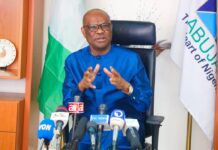
The African Development Bank (AfDB) fund has raised a cumulative total capital of 274 million US dollars since 2011, Dr Kevin Kariuki, Vice President Power, Energy, Climate and Green Growth, AfDB has said.
Kariuki said this in the recently released 2020 Annual report of the AfDB’s Sustainable Energy Fund for Africa (SEFA) titled “building foundations for success”.
The AfDB vice president also said various SEFA donors renewed their commitments and pledged over 90 million US dollars in new contributions.
“It is worth recalling that SEFA was transformed at the end of 2019 into a larger and more catalytic platform operating across three strategic priorities – green mini-grids, green baseload and energy efficiency – to accelerate the clean energy transition in Africa.
“It is therefore no surprise that the year culminated in the strong endorsement of SEFA’s ambitions and capacity to deliver.
“In the presence of representatives from African governments, private sector and industry players, various SEFA donors renewed their commitment and pledged over USD 90 million in new contributions, bringing SEFA to a cumulative total capital raised of USD 274 million since 2011.”
He emphasised that the “new” SEFA had an expanded toolbox from technical assistance grants to concessional project finance.
He noted that this was designed to support the AfDB in pushing new boundaries in the renewable energy space.
He further said more than 50 million US dollars was approved for projects in 2020, all of them with a huge potential to deliver impact.
Kariuki, however, said that the success of SEFA should leave no room for complacency.
“Let us build on our achievements this year and propel SEFA as a lead instrument for driving Africa’s energy transition and access agendas in line with the bank’s New Deal for Energy in Africa.”
The 2020 SEFA Annual Report was prepared by the SEFA Technical Unit and approved by João Cunha, Division Manager, and Daniel Schroth, Acting Director, Renewable Energy and Energy Efficiency Department, AfDB.
Section one of the report showcases the new SEFA focal areas and instruments, including both technical assistance and concessional investment instruments for projects across three focal areas.
The areas are green mini-grids, green baseload, and energy efficiency.
Section two of the report presents the key achievements in 2020, including the seven new projects approved, six projects completed, and the three outreach events.
The events were organised to disseminate and validate knowledge products developed with SEFA support.
Section three provides an overview of SEFA’s legacy (from 2012 to 2019) portfolio, encompassing a total of 80.5 million US dollars provided to 71 projects in 30 countries.
Furthermore, section four looks ahead to the priorities for 2021 and continuing SEFA’s transformation into the leading catalytic finance facility for the African continent. (NAN)



